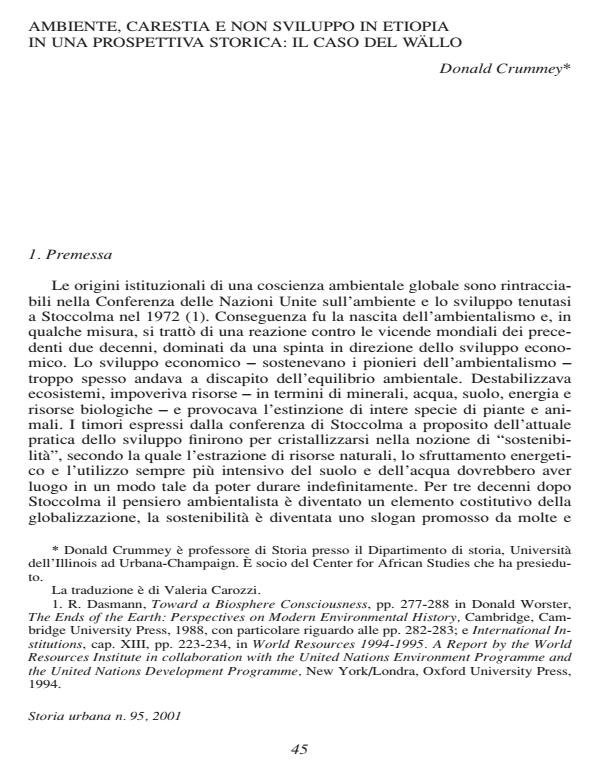Ambiente, carestie e non-sviluppo in Etiopia in una prospettiva storica: il caso del Wallo
Titolo Rivista STORIA URBANA
Autori/Curatori Donald Crummey
Anno di pubblicazione 2002 Fascicolo 2001/95
Lingua Italiano Numero pagine 26 P. Dimensione file 601 KB
DOI
Il DOI è il codice a barre della proprietà intellettuale: per saperne di più
clicca qui
Qui sotto puoi vedere in anteprima la prima pagina di questo articolo.
Se questo articolo ti interessa, lo puoi acquistare (e scaricare in formato pdf) seguendo le facili indicazioni per acquistare il download credit. Acquista Download Credits per scaricare questo Articolo in formato PDF

FrancoAngeli è membro della Publishers International Linking Association, Inc (PILA), associazione indipendente e non profit per facilitare (attraverso i servizi tecnologici implementati da CrossRef.org) l’accesso degli studiosi ai contenuti digitali nelle pubblicazioni professionali e scientifiche.
Farmers in the province of Wällo, Ethiopia, have suffered grievous famine twice during the last thirty years, once in 1973 and again in 1984-85. Their vulnerability to famine can be seen in the context of debates on economic development and the environment. This paper argues that the situation of the farmers in Wällo is best understood from the point of view of non-development. Following a brief summary of the history of Wällo, the paper explores the economic resources of the farmers and their relationship to a succession of national states, particularly with the Därg, which ruled Ethiopia between 1974 and 1991. It argues that certain Därg policies undermined the farmers’ capacity to cope with famine. It further argues that, given appropriate economic measures, farming in Wällo could be a much more viable proposition than is normally believed. One aspect of this argument is renewed appreciation of the farmers’ role in preserving the environment and in innovating agronomic practices.
Donald Crummey, Ambiente, carestie e non-sviluppo in Etiopia in una prospettiva storica: il caso del Wallo in "STORIA URBANA " 95/2001, pp , DOI: